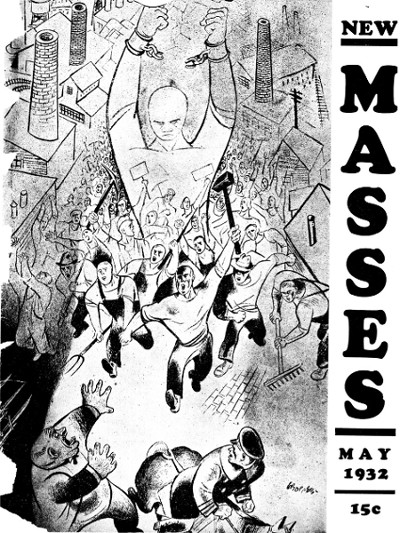
History: In October 1929, students organized to form the Duke Liberal Club described in The Chronicle as a forum for the discussion of economic, social, political, and ethical problems.1 According to Duke historian, Robert Durden, the Liberal Club represented "a small minority of students on campus who sympathized, however vaguely, with the idea of social change, [and], dared to deal critically with the subject of race relations,"2 through their campus discussion series. Roughly 50 students attended the first Liberal Club meeting, and the group consisted of about 20 members. The Liberal Club, albeit small, remained fairly active between 1929 and 1934.
Activities: The primary activities of the Liberal Club included bringing together a speaker series to engage students in topics related to workers' rights, race relations, socialism, and politics. In 1929, the group invited a Duke economics professor, Benjamin Ratchford, to speak about the textile strikes in Gastonia, NC. During that meeting, members adopted a resolution calling for a senatorial investigation of the textile industry that they presented to North Carolina senators. The Liberal Club created a notable campus controversy when they invited Norman Thomas to campus in December of 1930. Thomas's visit caused a stir among the administration, but did not deter the group from continuing to push the envelope via their ongoing speaker series, In addition to weekly discussion group meetings, the club maintained a bookshelf in the library to provide fellow students with significant books on socialist topics. The group even appointed a student librarian, May Bess Redford.
Nationwide: In the 1920s and 30s, student organizations on college campuses interested in liberal philosophy and socialist causes took shape as "discussion groups," with names like "Liberal Clubs" or "Social Clubs." Many of these clubs maintained a loose association with the national organizations of the National Student League of Industrial Democracy (NSLID) and League for Industrial Democracy (LID), led by Norman Thomas and Harry Laidler. While these clubs differed from campus to campus, their major activities included bringing speakers to campus to lead discussions on topics ranging from labor and economics to race relations. The NSLID and this network of Liberal Clubs was seen as focused on mostly academic efforts (e.g., hosting lectures and discussions) and lacked the impetus and organization to effect real social change.3 Despite the somewhat passive role these groups took on issues, their organizations would lay the groundwork for some of the more action-oriented student movements of the 1930s.
1. Duke Chronicle, October 23, 1929, p. 1.
2. Durden, Robert. The Launching of Duke University, 1924-1949, Durham, NC: Duke University Press, 1993, p. 217.
3. Cohen, Robert. When the Old Left Was Young: Student Radicals and America's First Mass Student Movement, 1929-1941, Oxford University Press, 1993, p. 33.
